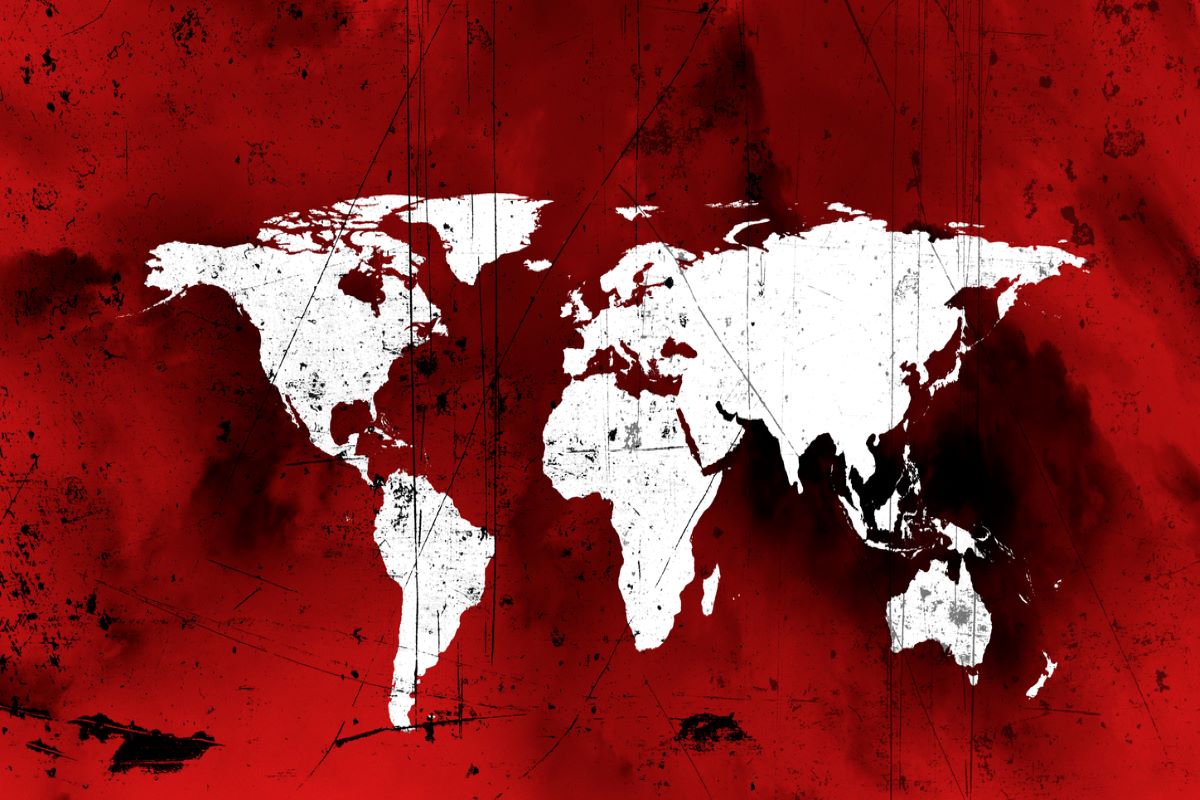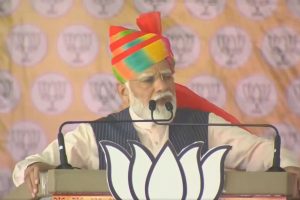Even in the late 1980s when colossal changes looked imminent in the erstwhile Soviet Union both internally and externally, Henry Kissinger’s advice was to move cautiously and plan a gradualist approach to change, to be spread over 15 years. There were however sudden changes, the reunification of Germany, Gorbachev allowing Baltic states and East European countries to move out of the Soviet orbit, dismantling of the Warsaw Pact and the effects of perestroika and glasnost within the Soviet Union.
A farcical coup which saw the ouster of Gorbachev led to the disintegration of the Soviet Union and end of communism. Boris Yeltsin took charge of the chaotic Russian federation that succeeded. It was an unexpected situation as there were attempts by the top Russian leadership under Yeltsin to distance themselves from 70 years of the Communist past and build bridges with the West. The Leninist model of total control and command economy was discredited.
The democratic upsurge with stress on the right of self-determination, market principles and getting integrated with the developed areas of advanced capitalism became top priorities of Russian policy. From confrontation to close cooperation and dismantling the economic isolationist policy of the Soviet era led to a pro-Western policy for building a world based on democratic peace.
Yeltsin in the past was not committed to liberal principles as he was firmly entrenched in the Soviet communist apparatus. But in the 1980s he shared Gorbachev’s critique of Soviet communism and agreed that the system needed drastic overhauling, but was still committed to one-party state. His removal from the communist party by Gorbachev made him a firm advocate of free market capitalism and liberal democratic values as these were crucial for economic recovery and for becoming a part of the West. After taking control in December 1991, he started pursuing this agenda linking Russia’s national interest with that of the West which in effect meant subordination of Russian interests and security concerns.
Along with Andrej Kozyrev, the foreign minister and other associates Yeltsin vigorously pursued a policy of bringing the Russian federation firmly within the framework of democracy and capitalism for achieving prosperity and peace. But this optimism of Yeltsin started fading quickly since the financial assistance from the West needed to rebuild the Russian economy did not materialise.
The rapid transformation expected out of a market economy imbibing liberal democratic principles did not take place and five years after the end of communism, many of these pro-western policies became suspect. Yeltsin even envisaged Russia joining the EU but the eastward expansion of the NATO, instead of dismantling it which was direct negation of American assurances to Gorbachev, led to disillusionment.
By the end of the decade when NATO initiated its bombing campaign in Yugoslavia only 14 per cent of Russians retained a positive attitude towards it, whereas more than 70 per cent were averse and critical. The unipolarism and unilateralism of the US was seen as destabilising and contrary to Russian interests and this realization prompted a new line of thinking led by Yevgeny Primakov, foreign minister and subsequently Prime Minister.
Reflecting on the failure of pursuing an idealised foreign policy, Primakov insisted on pragmatism based on Russia’s self-interest. The optimism of creating a mutually beneficial situation with close cooperation with the West seemed misconceived. In reality it was more in the nature of a zero-sum game with the West led by the US winning and Russia losing. A resurrection of realism and the need for a new balance of power by reducing US power and influence and resisting NATO expansion became the cornerstone of this policy. Realising the limitations of Russian power and influence it attempted cooperation with other big powers across the globe to counter US unilateralism.
The idea of BRICS was an important reflection of this new order. This meant opposing NATO expansion. Primakov, the foreign minister in 1997, drew the red line when Ukraine’s inclusion within NATO was on the cards. Russia also started to build bridges with its close neighbours and erstwhile members of the Soviet Union. During the Cold War days, the Soviet Union was onedimensional as its primary aim was military parity with the US. This, Primakov realised, was a grave mistake which had to be rectified gradually without disturbing the economic links with the West.
About the centrality of nuclear weapons Primakov was clear they held the key to providing strategic independence to Russia. But this had to be more defensive than offensive. Accepting the relative isolation and weakness of Russia, cooperation and alliances were important considerations. However, it also emphasised on retaining its veto power in the Security Council as that symbolized its continued importance.
Unipolarity usually breeds instability and for a more stable international system multipolarity is preferable. The shift in Russian foreign policy began in 1996 when Primakov became the foreign minister. As Sergei Lavrov, the present foreign minister, asserts it was Primakov who initiated an important course correction in Russian foreign policy by which “Russia left the path of our Western partners…and embarked on a track of its own”.
The departure was demonstrated when Primakov cancelled his visit to Washington mid-air and returned to Moscow as a protest against NATO’s impending bombardment of Serbia in March 1999. Vladimir Putin after becoming President in 1999 continued with the Primakov doctrine. But after the 11 September 2001 terrorist attack on the World Trade Centre, New York, he attempted to build bridges with the US. But later he reverted to the Primakov doctrine.
One significant aspect of revisiting the Primakov doctrine is its primary focus on Asia by building a strong Eurasian security and economic system. Putin continued with Russia’s nuclear cooperation with Iran. The Iranian President visited Moscow to a warm welcome. Most important was the signing of a friendship treaty with China in July 2001. But he retained normal relationship with the US, as his aim was limited to protecting Russian interests where the US was an impediment and surmounting it with alliances.
Overriding Russia’s strong opposition, the Bush administration abrogated the 1972 Soviet US Anti-Ballistic missile treaty. Putin also objected to US intervention in Iraq. The continued US criticism of Russian assistance to Iran’s nuclear programme was another irritant.
The Russian internal suppression of Chechnyan rebels was not supported by the US. The subsequent democratic upsurge in Georgia and Ukraine convinced Russia of US involvement. Putin even conceived of a larger European bloc with France and Germany. But since this did not happen, he started to increasingly put his attention on Asia where many nations had serious differences with the US and were also resourceful.
Eurasia became the pivot of a project of building a multipolar world with a firm alliance with China. Asian nations found this cooperation useful as it would blunt US efforts to stop their own ambitions. Many of the Asian authoritarian regimes fear democracy as it would advance US interests at the cost of their own. The easier armaments supply from Russia was another consideration. With the growing confidence of a more prosperous Russia, with self-sufficiency in food and becoming an exporter of grain, the expansion and frequent persuasion of the Primakov doctrine is likely.
The swift intervention in Kyrgyzstan to bring back order is the most recent example. It reinforces an important foundation of Primakov’s policy of closer integration with former Soviet republics and insistence on a declaration of legal guarantees that there would not be any expansion of NATO. What reinforces it is the growing cooperation with China in all spheres including the BRI and significant cooperation in other areas of vital strategic interest for both. This allows Russia with the support of China to oppose the US-sponsored rulebased international economic order and re-establishing the primacy of international law and supremacy of the United Nations.
The Russian insistence on legally binding security guarantees against further NATO expansion is a reasonable demand as release of classified documents of 1989-92 reveal that commitments to this effect were made by the US to both Gorbachev and Yeltsin. The threat of sanctions has lost its teeth as it would be a severe economic setback for Europe and indirectly to the US itself. Both a recession and sharp fall of standard of living is likely in a situation when inflation is becoming a serious concern across the Atlantic.
In case of Russian action in Ukraine, a defeat of Ukraine is certain which will lead to loss of credibility of the West. It will affect the supply of natural gas, whose reserve in Europe is precarious and a surge in price would be economically disastrous. The US has already made it clear that US and NATO would not get directly involved and would not supply offensive weapons to Ukraine. The commitment of continued supply of limited defensive weapons would not alter military balance. The consequence of an EU/USA sanction would be only symbolic and Russian retaliation would offset the gains.
The sanctions of 2014 also had limited effect as a resurgent Russia could modernize with indigenous innovations and Chinese help in the important sectors of gas and oil. In such a situation, American options are limited. The problem with the ideologically constructed foreign policy dogma of free choice is that it is not followed by the US itself. Even for its close ally, Germany and its economic interest like Nord Stream 2, the US dictates terms as it does with others. This is reminiscent of Brezhnev’s doctrine of limited sovereignty for socialist countries.
Moreover, such sanctions have lost their sting as the US is no longer the undisputed leader of the world with economic balance shifting to China-led East Asia. With a huge trade deficit with China, in spite of tariffs, the US’ domination of the world economy is shrinking, in which countries like Russia with important natural resources like gas have become more autonomous and vital for maintaining global supply chains.
Russia teaming up with China is also closing the gaps in manufacturing and frontier technology. It also helps them to think of building enduring alternative financial systems. Primakov’s formulation of a multipolar world has opened up possibilities of an emergence of a collective East challenging and balancing the collective West.
(The writer is a retired Professor of Political Science, University of Delhi)











